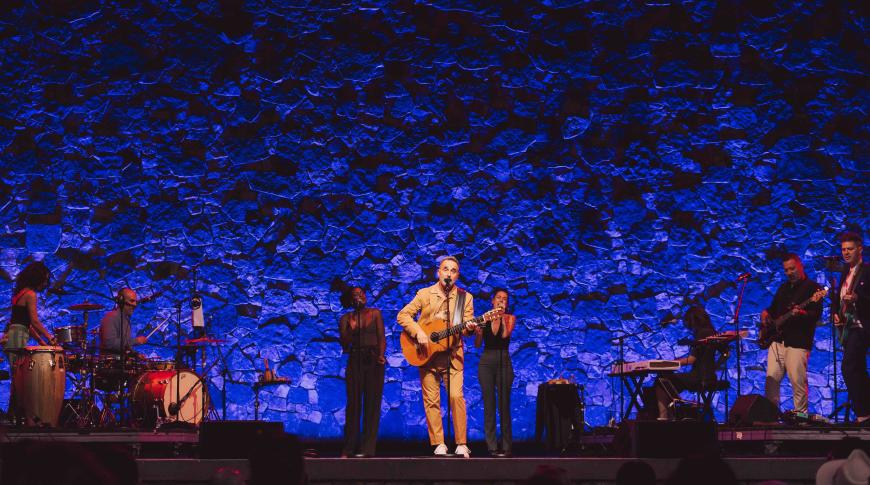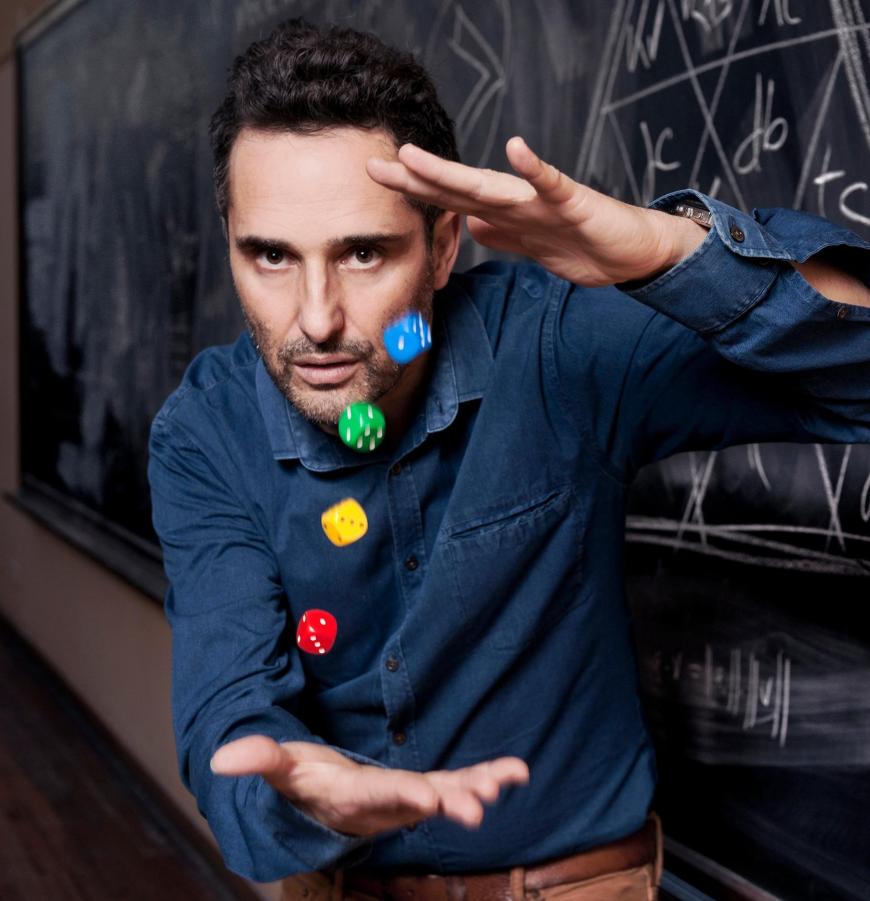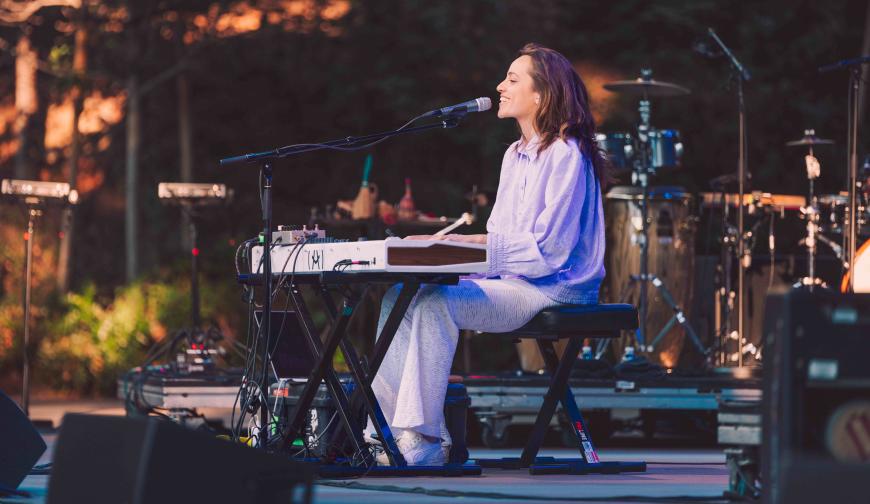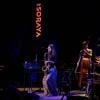
Jorge Drexler made his Bay Area debut at Brava Theater Center in 2005, in the wake of his historic triumph at the Academy Awards, when he became the first composer of a Spanish-language song to earn an Oscar. It was a bittersweet moment, as the Uruguayan-born, Madrid-based singer-songwriter had been deemed too obscure to perform “Al Otro Lado del Río” from The Motorcycle Diaries on the broadcast. (In keeping with a long tradition of questionable Academy Awards production choices, Antonio Banderas was recruited for musical duties.)
Ubiquity and brilliance are the best revenge, and since that most public dis, Drexler has become a definitive 21st-century Latin American artist, releasing a steady stream of popular, critically hailed albums, earning 13 Latin Grammy Awards, and collaborating with a diverse roster of fellow stars, including translating and writing lyrics for Shakira.

At Brava, Drexler performed solo, and his all-too-rare appearances in the region since then have featured him with bare-bones combos, which made his performance Thursday at Stanford’s Frost Amphitheater feel like a reintroduction. Co-presented by Stanford Live and SFJAZZ and backed by a tight and impressively multi-instrumental seven-piece band, including excellent backup vocalists Alana Sinkëy and Miryam Latrece, he delivered a generous two-hour show traversing material from a quarter century, from early pieces like “Transporte” to the irresistible title track of his most recent album, Tinta y Tiempo. (He would bring the same setup to The Ford in L.A. on Saturday.)
An elegant host who made a point of featuring each of his musicians, Drexler both filled the amphitheater with deeply textured, electronica-tinged sound and stripped the music down to its essentials with solo and duo arrangements. His sumptuously evocative body of music was well served by the shifting instrumentation, like on an exquisite version of “Organdí,” a song he wrote for his young daughter (and that he recorded himself performing to send to her on her July 27 birthday).
His smooth tenor can bring to mind Caetano Veloso (with whom he’s collaborated), but where the Brazilian star is a sensualist, Drexler is a heady songwriter who finds elemental settings for his lyrics. With an introduction hailing the South American nation that gave refuge to his paternal grandparents, German Jews who fled the Nazis in 1939, he launched into the tense but celebratory anthem “Bolivia” over the percussion tandem of Borja Barrueta and Gala Celia laying down a polyrhythmic matrix.
With Javier Calequi on guitar and bass, Carles “Campi” Campón on bass, loops, and samples, and Meritxell Neddermann on keyboards and backing vocals, the band effortlessly pivoted between rhythms and idioms, including on Drexler’s hip-hop-inflected “¡Oh, Algoritmo!” a rare venture into extravagant irony for the generally earnest songwriter (who here effectively delivered the passage created by Israeli rapper Noga Erez on this recent single).

An extended encore turned the amphitheater into a euphoric dance party, bringing the energy to a peak. The evening started with a brief, intriguing solo set by Neddermann, a rising Barcelona singer-songwriter in her own right, who performed half a dozen original songs in Spanish, English, and Catalan. Occasionally processing her winsome voice with a vocoder, she displayed a wry sense of humor and deft timing while observing the power and pitfalls of gossip on the English-language “Story.” Like Drexler waiting anxiously in Hollywood’s Kodak Theatre in 2005, she’s a talent to watch.



